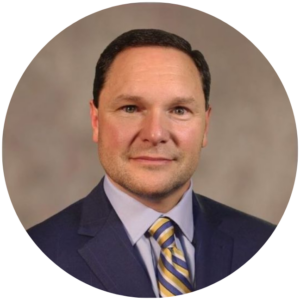Locums CME is a bi-weekly roundup of recent news that matters to locum tenens providers. Stay in the loop on what’s new in the locums industry, and make the most of the locum tenens lifestyle with our fresh finds.
Provider Groups Urge Congress to Review CMS Fee Schedule Proposal
7/13/23
Physicians have expressed concern over the Biden Administration’s proposed physician fee schedule for 2024. The Centers for Medicare & Medicaid Services (CMS) set the conversion factor, the dollar amount assigned to relative value units, at $32.75. The new conversion factor is a 3.34% decrease from the previous year.
Despite the decrease in the conversion factor, CMS proposed pay hikes for primary care physicians (PCPs) and other services, but any increases would require cuts from somewhere else to achieve budget neutrality.
Provider groups called on Congress to take another look at the proposal, claiming that Medicare already fails to cover the cost of care to beneficiaries and that proposed cuts only make the problem worse. Healthcare providers are asking representatives to reexamine the existing law to update a fee schedule equivalent to the inflation rate.
Some of the other elements of the proposal:
- New payment codes for services that meet the needs of underserved populations
- Payments for caregiver training, which ensures physicians receive compensation for assisting caregivers
- New payments for community health workers and navigation services for cancer patients, which is a highlight of Biden’s Cancer Moonshot Initiative
- The rule proposes to allow marriage and family therapists and mental health counselors, including addiction counselors, to enroll in Medicare and bill for their services for the first time.
There’s a 60-day public comment period on this proposed rule, and CMS encourages members of the public, including Accountable Care Organizations (ACOs), providers, suppliers, and Medicare beneficiaries, to submit comments here. The 60-day comment period closes on Sept. 11.
Go into greater detail on the CMS proposal in this analysis from Fierce Healthcare.
Your Locums Prescription
Sustaining Quality Care: The Perks of a Recurring Locum Tenens Contract for Providers
7/6/23
Locum tenens gives providers flexibility and freedom and gives facilities reliable, quality clinicians. It’s a win-win for everyone. However, there’s a drawback: the assignments are only temporary.
Cross Country covered some of the benefits for a provider looking for a recurring locum tenens contract:
- Providers can plan vacations and personal obligations around a predictable work schedule.
- Providers can build stronger relationships with patients they see more often.
- Providers can become familiar with procedures and the facility’s culture
- Patients can work with providers who are less stressed and enjoy their jobs.
- Providers can get the team experience since they are working with the same staff.
- Traveling providers can become better acquainted with the location they’re spending time in the long term.
Take a closer look at recurring locum tenens opportunities in full article from Cross Country.
New Legislation Allows for Widespread Reimbursement of Telehealth Services
7/26/23
Locum tenens physicians have already had the benefit of using telehealth to treat patients, and now the Advancing Telehealth Beyond COVID-19 Act extends that benefit to cover Medicare reimbursements through the end of 2024. This extension is a significant step in ensuring reliable and accessible patient healthcare by allowing more physicians to implement virtual appointments within their patient care delivery models.
Under the Act, Medicare now covers a wide range of medical services that can be administered through telehealth, including:
- Office visits
- Psychotherapy
- Preventative health screenings
- Emergency visits
- Physical therapy
- Occupational therapy
This new legislation also enables eligible locum tenens providers to bill Medicare for telehealth services, even if they were not authorized telehealth providers before the COVID-19 pandemic.
MPLT Healthcare details more of the benefits of this legislation for providers.
Factors That Make a Difference in a Locum Tenens Provider’s Pay Rate
7/27/23
In today’s healthcare landscape, facilities are faced with staffing gaps and provider shortages. This makes locum tenens providers an indispensable asset, and it opens up the possibility for them to earn more money.
TheraEX Locums examined some of the most significant factors determining a locum provider’s pay rate. Some of the key factors affecting locum tenens docs’ pay are:
- Medical specialty
- Experience
- Location
- Demand
Different medical specialties and regions will offer varying compensation rates, and high-demand specialties like emergency medicine and anesthesiology can offer higher daily rates. Some of the top specialties in demand for locum tenens are family medicine, primary care physicians, psychiatrists, and anesthesia providers.
Read more about the factors that determine pay rates for locum tenens, and get valuable tips to help you negotiate your locums contract.
Physician Wellness Retreat
Unraveling the True Triggers of Radiology
7/24/23
Burnout is top of mind right now in all healthcare fields. Dr. Eric Postal, a radiologist, says, in his personal opinion and in the opinion of other radiologists he interacts with, it’s not the medical work that causes that burnout. Instead, all the ancillary stressors that occupy the day often lead radiology providers to burnout.
These ancillary stressors include things like:
- Software and hardware issues
- Poorly established protocols
- Administrative hassles and maladaptive workflows
These may seem like minor annoyances, but their constant presence and repetition contribute to burnout over time. Dr. Postal says decision-makers could address these by including the radiologists’ input and resolving these stressors could go a long way in reducing burnout and improving morale for radiology professionals.
Read Dr. Postal’s full opinion in this blog post from Diagnostic Imaging.
Shifting Perspectives: Healthcare Professionals and Self-Care During COVID-19
7/31/23
During the COVID-19 pandemic, self-care was a crucial aspect of healthcare during nationwide lockdowns that were ordered to reduce the transmission of the virus. A recent study from PLoS ONE examined changes in attitudes, perceptions, and self-care practices among healthcare professionals (HCPs) during the pandemic.
Researchers wanted to determine how confident HCPs would be in advocating for self-care and lifestyle treatments for their patients. The proportion of HCPs feeling that self-care was extremely essential to their patients increased from 54% to 87% since the start of the pandemic, according to the study.
However, the study also identified some barriers to self-care, a lack of understanding or willingness to participate, and “digital exclusion,” or the lack of access to technology resources. HCPs said they feared the shift to a focus on self-care would leave patients feeling abandoned rather than empowered.
Dive more into the study and what researchers found in the full article from News Medical Life Sciences.
A Roadmap for PCPs to Build A Mentally Health Workplace
7/19/23
Primary care physicians are burnt out from long hours, irregular shifts, physical and emotional labor, and exposure to death, disease, and violence. But despite all these things, they still work to maintain a high quality of care.
What can a primary care physician (PCP) do to manage these stressful conditions?
Andrew Colsky, attorney and licensed professional counselor, shares suggestions PCPs should do for a more mentally healthy life:
- Take care of yourself: Exercise regularly, practice meditation, eat healthy, and get sufficient sleep. Use self-care tactics such as deep breathing exercises, meditation, and other mindfulness techniques.
- Take care of your staff: Be flexible and ensure they take time to care for themselves so they can avoid burnout.
- Meet with your personnel regularly to check in: Gauge their well-being and give them the platform to express their feelings.
- Create boundaries: Prioritize setting clear boundaries between work and life. Set specific work hours and stick to them.
- Mental Health Resources: Make sure everyone knows the resources they can access, such as employee assistance programs or counseling services. Share these resources with staff and promote them often so there’s no stigma around using them.
Read the article from Medical Economics and discover strategies to manage stressful conditions and create a healthier workplace.
Mark Your Calendar: Must-Attend Conferences for Locum Tenens Providers!
8/3/23
Physicians are always looking for opportunities to take care of their yearly CME requirements. Here are a few upcoming opportunities to knock out those requirements and network with your fellow locum tenens providers.
Brave Enough 2023 Women’s CME Conference: MASTERMIND, Sept. 28 – Oct. 1, Scottsdale, Arizona
- Women in attendance will discuss what they need to grow professionally as physicians with workshops and group discussions. Women can earn 13.25
Category 1 AMA CME credits while learning about physician burnout treatment and what you can do about it.
Visit this link to register for the event or download the agenda.
American Conference on Physician Health 2023 – Oct. 11-13, Palm Desert, California
- The American Medical Association and Mayo Clinic ACPH is the premier US conference on physician health. The Oct. 11-13 event includes keynote speakers, interactive workshops, and networking opportunities, promoting scientific research on health system infrastructure and actionable steps to improve physician well-being.
Visit this link to learn more about the event.
Physician Wellness Fall Conference 2023 – Oct. 28-30, Ivins, Utah
- Registration is open for the 3-day Physician Wellness Conference at the Red Mountain Resort and Spa in beautiful Ivins, Utah. Physicians can receive up to 15 hours of AMA PRA Category 1 Credits by participating in interactive presentations, workshops, and evening group discussions — you’ll also have free afternoons to take in all of your surroundings.
Visit this link to learn more and take advantage of discounted room rates.
Socially Speaking
From LinkedIn
From Facebook
From Twitter
Doctor’s Notes
10 States Struggling To Provide PCP Care for Patients
7/25/23
Patients in America fear the physician staffing shortage will prevent them from receiving timely, necessary medical care. A HealthDay/Harris Poll from March 10 showed that 52% of Americans were worried about physician shortages, and 3 out of 4 patients faced delays and barriers in 2023.
The Bureau of Health Workforce, Health Resources, and Services Administration (HRSA), and Department of Health and Human Services (HHS) broke down the care shortage by area and ranked each state by the “percentage of needs met.”
Here are the 10 states struggling the most with the PCP shortage by “percentage of needs met”:
- Delaware: 16.4%
- Missouri: 20.3%
- Alaska: 21.9%
- Nebraska: 26.7%
- New Jersey: 26.9%
- Washington: 29.6%
- North Dakota: 32.1%
- Florida: 33%
- New York: 37.4%
- South Dakota: 37.9%
Get insights from the Bureau of Health Workforce on care shortages in Becker’s ASC Review.
32 Healthcare Professionals Share What They Want Their Coworkers to Know
7/24/23
Thirty-Two Ambulatory Surgical Center (ASC) healthcare professionals shared their insights with Becker’s ASC Review about what they wished their co-workers knew about their roles in the healthcare facility.
Providers covered numerous aspects of their jobs, highlighting the importance of communication, being completely transparent, and how displaying empathy creates a supportive and well-functioning healthcare environment.
Here’s what a few of those healthcare administrators and providers had to say:




Learn what the other 28 providers and admins interviewed had to say in Becker’s ASC Review’s full article.









